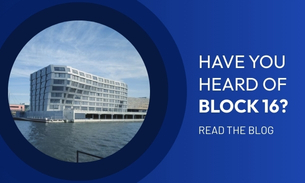The Gulf’s Rise as a Tech Powerhouse
QIMC Boosts Control with Strategic 52% Ownership in QALEX,The Gulf region, once known primarily for its oil reserves and trade networks, is now emerging as one of the most exciting global centers for innovation. Countries such as the United Arab Emirates, Saudi Arabia, and Qatar are building a future where technology and entrepreneurship go hand in hand. Over the past decade, these nations have shifted focus from resource dependency to knowledge-based economies, investing in people, ideas, and infrastructure. At the heart of this transformation are entrepreneurial hubs that bring together startups, investors, global corporations, and government initiatives. These hubs are not only reshaping the Gulf economy but also putting the region on the global map of technology and innovation.
Government Support and Visionary Leadership
The Gulf’s transformation into an innovation-driven region would not have been possible without visionary leadership and government support. National strategies like Saudi Arabia’s Vision 2030 and the UAE’s National Innovation Strategy reflect a clear determination to diversify economies and reduce reliance on oil. These blueprints place entrepreneurship at the center of economic growth. Governments have introduced policies that simplify licensing, cut down bureaucratic hurdles, and open pathways for foreign investment. Free zones have been established to give startups a favorable environment where taxes are minimal and support is maximized. By making entrepreneurship a national priority, Gulf leaders have created fertile ground for innovation.
The Role of Free Zones in Innovation
Free zones in the Gulf have become magnets for entrepreneurs. Places such as Dubai Internet City, Dubai Silicon Oasis, and King Abdullah Economic City offer world-class infrastructure, advanced connectivity, and streamlined business processes. Entrepreneurs operating within these zones can focus on innovation rather than worrying about red tape. At the same time, they benefit from being part of thriving communities where knowledge exchange is constant. Multinational corporations often set up regional offices in these zones, allowing startups to learn, collaborate, and compete with global players. This dynamic environment accelerates creativity and ensures the Gulf remains an attractive destination for ambitious innovators.
Venture Capital and Funding Opportunities
No entrepreneurial ecosystem can thrive without access to funding. The Gulf has recognized this and created strong networks of venture capital firms, angel investors, and government-backed funds. Over the past few years, the region has seen a sharp increase in venture capital flowing into early-stage startups. Fintech, e-commerce, health tech, and artificial intelligence have become hot sectors for investment. What makes this ecosystem particularly effective is that investors often go beyond financial support. Many provide mentorship, industry insights, and strategic partnerships, which help startups grow beyond their local markets. The confidence of investors in the Gulf is empowering entrepreneurs to pursue bold and transformative ideas.

Focus on Emerging Technologies
Entrepreneurial hubs in the Gulf are not confined to traditional sectors. They are placing strong emphasis on emerging technologies such as artificial intelligence, robotics, blockchain, and renewable energy. Startups are exploring solutions that directly contribute to building smart cities, autonomous vehicles, digital healthcare, and energy efficiency. These technologies align perfectly with the Gulf’s vision of futuristic cities and sustainable economies. By becoming early adopters and active developers of such technologies, the Gulf positions itself not as a consumer of innovation but as a creator of global solutions.
Collaboration with Global Tech Leaders
The Gulf has also learned the importance of partnerships in accelerating innovation. Collaborations with tech giants from the United States, Europe, and Asia allow local startups to gain access to advanced expertise and mentorship. These partnerships help entrepreneurs bridge the gap between ambition and execution. They also create opportunities for Gulf-based startups to test their products in international markets. Through such collaborations, entrepreneurial hubs in the region have become platforms where local creativity meets global knowledge, resulting in groundbreaking solutions that resonate worldwide.
Incubators and Accelerators Driving Growth
Incubators and accelerators have become an integral part of the Gulf’s startup landscape. Initiatives like Flat6Labs, Techstars Dubai, and Astrolabs are playing a vital role in nurturing entrepreneurial talent. These platforms provide startups with mentorship, workspace, funding opportunities, and access to professional networks. More importantly, they help entrepreneurs refine their ideas into viable business models. The structured programs offered by incubators and accelerators significantly increase the survival rate of startups, enabling them to overcome early challenges and scale their businesses effectively.
Talent Development and Education
A strong foundation of talent is essential for innovation, and the Gulf has made notable progress in this area. Universities are introducing specialized programs in computer science, artificial intelligence, and entrepreneurship. At the same time, coding bootcamps, hackathons, and innovation challenges are encouraging young people to experiment and build solutions. The emphasis is not only on academic knowledge but also on practical problem-solving skills. By investing in human capital, Gulf nations are building a pipeline of innovators who can compete at a global level and drive the future of technology in the region.
Tech Clusters and Innovation Districts
Another important development in the Gulf is the rise of innovation districts and technology clusters. Areas such as Masdar City in Abu Dhabi and Dubai Silicon Oasis are designed as ecosystems where startups, universities, and corporations coexist. These hubs encourage collaboration, knowledge exchange, and joint research initiatives. The close proximity of different players creates a clustering effect, which leads to faster innovation cycles. For foreign investors, these clusters offer a concentrated marketplace of ideas and opportunities, making them highly attractive destinations for global partnerships.
The Rise of Social Entrepreneurship
While profit-driven ventures dominate the landscape, the Gulf is also witnessing the growth of social entrepreneurship. Many startups are leveraging technology to address pressing challenges in education, healthcare, sustainability, and social inclusion. This trend reflects a broader shift where success is measured not just by financial performance but by social impact. Entrepreneurs are increasingly motivated by the idea of creating businesses that improve lives and solve real-world problems. This human-centered approach adds depth to the Gulf’s innovation ecosystem and showcases how technology can be used for the greater good.

Regional Collaboration and Knowledge Sharing
Collaboration is not only happening within countries but also across the Gulf region. Cross-border partnerships, shared research initiatives, and regional tech events are creating an environment of collective growth. Entrepreneurs benefit from access to larger markets, and governments benefit from pooling resources and expertise. This spirit of collaboration ensures that Gulf nations are not competing in isolation but rather building a unified and competitive technology ecosystem that can stand alongside global giants.
Challenges and Opportunities
Of course, the path toward becoming a global innovation hub is not without challenges. The Gulf faces issues like limited market size, competition for global talent, and heavy reliance on government incentives. Yet, these challenges are also opportunities. Startups are finding ways to expand internationally, governments are investing in homegrown talent, and the private sector is becoming more active in supporting innovation. With every challenge comes a chance to adapt and strengthen the ecosystem, and the Gulf is showing resilience in addressing these areas.
Success Stories Inspiring the Next Generation
Stories of successful startups from the Gulf serve as powerful inspiration for young entrepreneurs. Companies in fintech, healthtech, and e-commerce have scaled beyond the region, gaining international recognition and investment. Their journeys highlight the potential of Gulf hubs to produce world-class innovators. These stories not only demonstrate what is possible but also encourage a culture of risk-taking and resilience. For aspiring entrepreneurs, they are proof that the Gulf is a place where dreams can be turned into reality.
Future Outlook: A Global Tech Leader
Looking ahead, the Gulf’s entrepreneurial hubs are positioned to become influential players in global technology. Continued government support, growing private investment, and the emphasis on education will strengthen the region’s role. By embracing emerging technologies, promoting social entrepreneurship, and deepening international collaborations, the Gulf can set new benchmarks for innovation. The momentum is strong, and the region is steadily carving out a space as a leader in shaping the digital future.
Conclusion: Transforming Vision into Reality
The Gulf’s entrepreneurial hubs are far more than business centers. They are engines of transformation, driving new ideas, economic diversification, and social progress. With bold leadership, strong ecosystems, and a culture that embraces innovation, the Gulf has shown that it is capable of turning vision into reality. The region is not just participating in the global technology revolution; it is helping to shape it. As these entrepreneurial hubs continue to grow, they will inspire innovation, create opportunities, and redefine the Gulf’s role on the global stage.
Also Read – Oman-India CEPA Nearing, Promising Prosperous Bilateral Future



